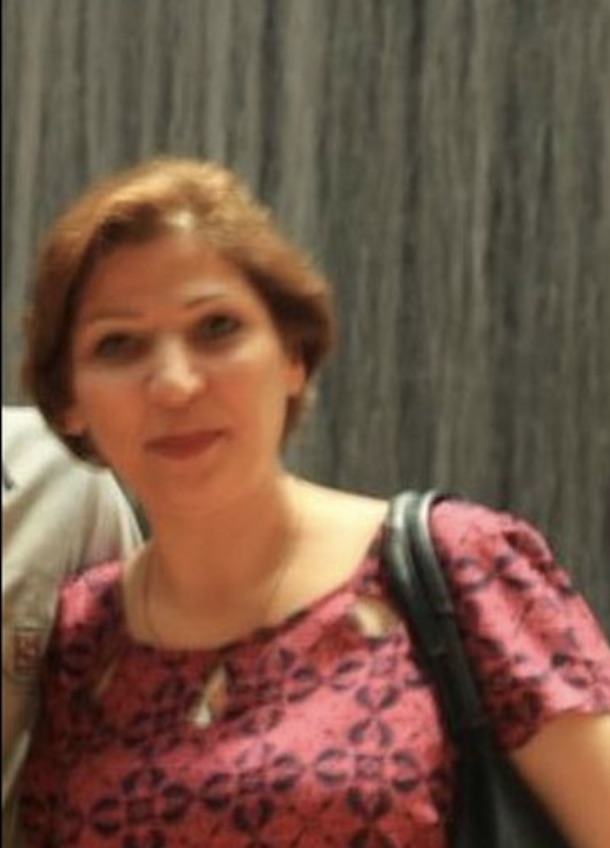Source: iranwire.com

Fataneh Nabilzadeh, a Baha’i resident of the city of Mashhad, has been transferred to the city’s Central Prison in Vakilabad to start serving a one-year sentence.
Intelligence Ministry agents arrested Nabilzadeh about five years ago at her home. Her crime was that she had administered tests to her son and another Baha’i student on behalf of the Baha’i Institute for Higher Education (BIHE).
Baha’is in Iran are barred from attending institutes of higher education. In response, Iranian Baha’is established BIHE, an underground university that conducts many of its classes remotely and online. The classes are taught in the living rooms and kitchens of private Baha’i homes by volunteer Baha’i professors, most of whom lost their jobs after universities were purged of people of the Baha’i faith. Many Baha’i volunteers help the university by helping with administrative and office work and many of them also make their homes available for classes and examinations. Often the hosts also administer tests; Nabilzadeh was one of them.
“On Tuesday, August 13, 2013 agents of the Intelligence Ministry, carrying a warrant, entered the home of Fataneh,” a source close to Nabilzadeh told IranWire. “She was arrested while she was administering tests to her son Peyman Sarraf and another young Baha’i by the name of Diane Teymouri.”
Fataneh Nabilzadeh did not hold a formal position with BIHE. She had simply agreed to give the test. “When security agents entered her home, she had given them the questions and was waiting for them to finish so she could take the papers,” the source said.
Raids by security agents to disrupt BIHE exams in Mashhad had happened before, including on a regular basis in recent years, but this is the first time an individual had been tried and imprisoned on these specific charges.
After the arrest, security agents took Nabilzadeh and the two students to Mashhad’s Intelligence Bureau. Diane Teymouri was cleared of charges and was released after three weeks following interrogations. Peyman Sarraf was released on bail but the examining magistrate ordered that Fataneh Nabilzadeh be taken to the Baha’i ward at Vakilabad Prison. She was released on bail after two months.
“Propaganda Against the Regime”
In 2017, Nabilzadeh and her son Peyman were tried at Branch Three of Mashhad’s Revolutionary Court presided over by Judge Mohammad Soltani, who stands accused of violating the human rights of defendants. On January 28, 2018, the judge found Peyman Sarraf not guilty but sentenced Fataneh Nabilzadeh to one year in prison for “propaganda against the regime.” He did not go into details about how administering tests could be construed as “propaganda against the regime”.
She appealed, but the court upheld the lower court’s verdict and Nabilzadeh was summoned to court to start serving her sentence.
Fanatical Shias consider Baha’is to be “unclean.” As a Baha’i resident who lives in Mashhad told IranWire, for years, “Baha’i women inmates at Vakilabad Prison [have been] kept separate from other prisoners because of ‘cleanliness’ issues. They even have different hours for walking in the prison yard to minimize the chances of encounters between Baha’is and other inmates.”
The source added that, as an added punishment, political detainees are kept in the same cell as the Baha’i prisoners. “Right now,” said the source, “two political detainees are held in that room.
Their cell is located at the end of the hallway at the women’s ward and was originally a storeroom. But as the number of Baha’i woman prisoners increased, prison staff converted the storeroom into a cell for Baha’i inmates. Among the other Baha’i inmates held at Vakilabad Prison is Nika Kholousi, who is serving a five-year sentence for membership to a Baha’i organization.
One month after the announcement of Nabilzadeh’s conviction, four other Baha’i citizens — Dori Amri, May Kholousi, Saghi Fadaei, and Shayan Tafazzoli — also received one-year prison sentences from Branch 3 of the Revolutionary Court of Mashhad.
Leave a Reply